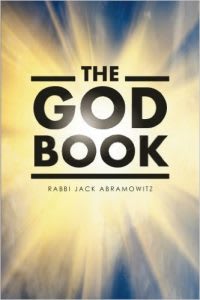3. Does God Have Attributes?
The articles in this series are based upon ideas expressed in the Rambam’s Moreh Nevuchim (The Guide for the Perplexed). Numbers in brackets represent the book and chapter of Moreh Nevuchim where these ideas are discussed.
We are all familiar with the thirteen "attributes" of God, as found in Exodus 34:6-7. According to our usual understanding of these verses, God is:
(1) compassionate before a person sins; (2) compassionate even after a person sins; (3) mighty in compassion to provide for all creatures according to their needs; (4) merciful; (5) gracious; (6) slow to anger; (7) abundant with kindness; (8) and with truth; (9) granting kindness to thousands; (10) forgiving iniquity; (11) and transgression; (12) and sin; (13) and pardoning.
It may surprise readers, however, to learn that the Rambam considers the idea that God has attributes to be as incorrect as the thought that He has a body! We are so used to the idea of God's incorporeality that we may take for granted that the Torah's physical anthropomorphisms are mere metaphors. Surprise, surprise - so are the descriptions of God's "attributes!"
An attribute, Rambam tells us, is not inherent in a thing, but is something added. [I, 51] If a woman is tall or a sweater is blue, these are attributes, not inherent qualities.
One of the fundamental tenets of the Jewish faith is the unity of God. According to this principle, God is indivisible and He has no parts. To suggest that God has a number of attributes is to suggest that He has components, which is certainly not the case. We cannot accurately posit that "God is merciful" or "God is kind." In reality, the only equation that balances is "God is God." Accordingly, we must jettison the idea of attributes alongside that of corporeality.
The Rambam demonstrates that we cannot describe God using most of the ways we would describe a person. We could describe a person based on his parts (blue-eyed or red-haired), or based on his qualities (tall, strong or lactose-intolerant). One could also describe a person based on his relationships, such as "Mary's husband" or "who lives in Seattle." All of these are inapplicable ways of trying to describe God, as they require adding something to the equation "God is God." Only one method truly pertains to God: describing Him based on His actions. Just as we can say, "Joe is a painter" and "Cynthia is a dentist," we can describe God based on His deeds. Who is God? He's the One Who created the world. He's the One Who took us out of Egypt. These types of descriptors do nothing to upset the balance of the equation "God is God."
We came to have the idea that God has attributes the same way that people got the idea that He has a body: by reading the text and taking metaphors literally. [I, 53] Here, too, the Torah "speaks the language of man" (Sifre 112), and the intention is really only to describe God in ways that would be considered forms of perfection when applied to a human being. But in reality, God has no such "attributes."
To modify an example provided by the Rambam, let us imagine fire. If you apply fire to paper, it will burn. To metal pipes, they will get scorched. Apply fire to ice and it will melt. Someone unacquainted with fire might conclude that fire includes a burning agent, a scorching agent and a melting agent, when in reality they are all the same thing. Similarly, we discuss God's "might," His "wisdom" and His "will" as if they are separate because they're different in us. But in God, they're no more different than fire's burning power is from its melting power. His "wisdom," "might" and "will" are all truly the same thing because "God is God" without any parts!

